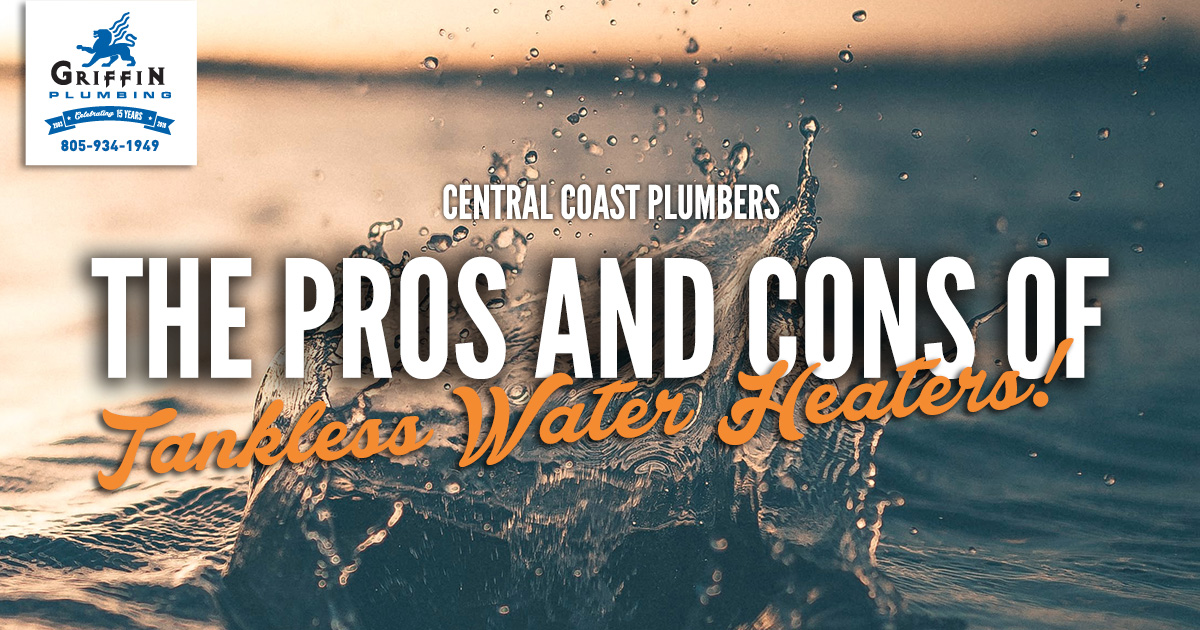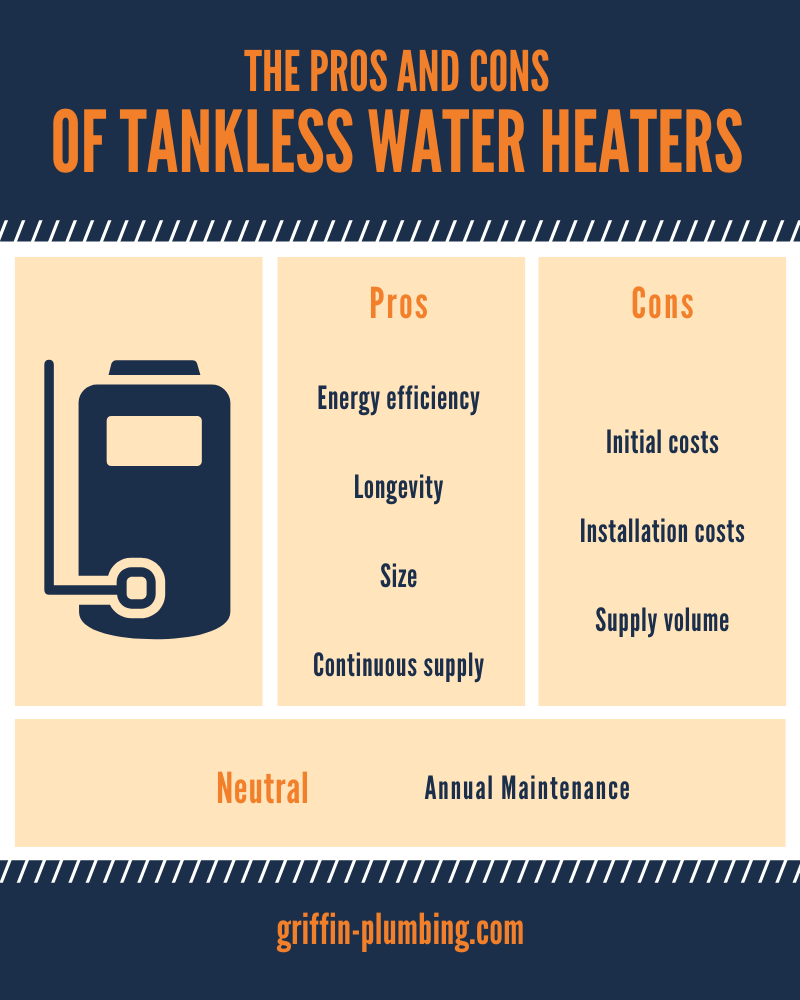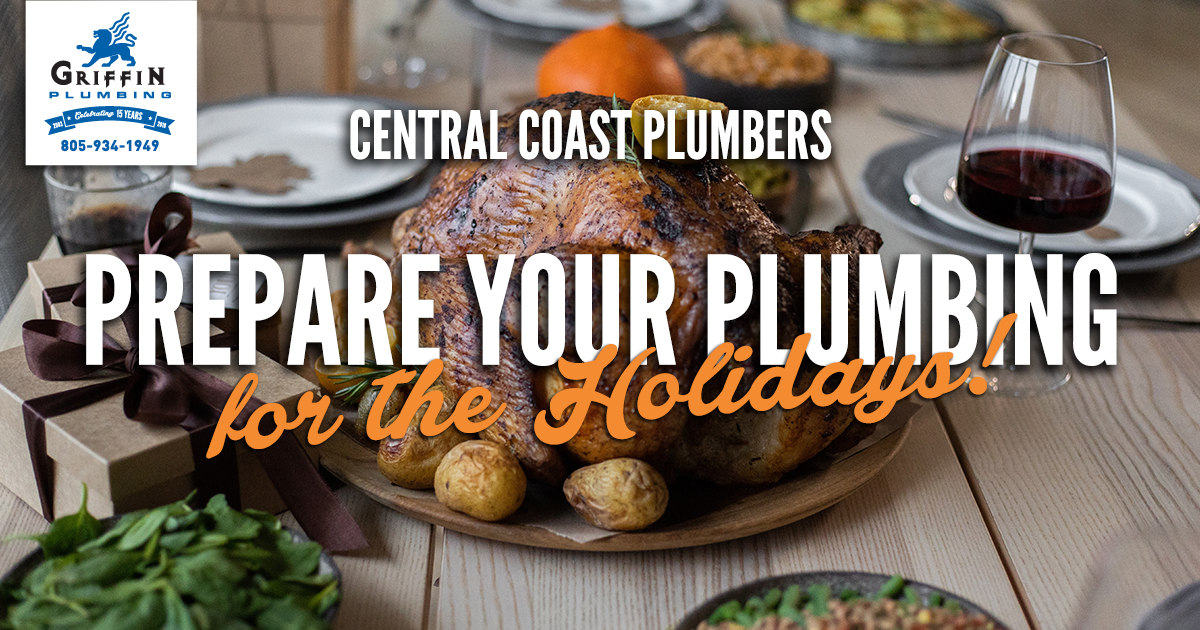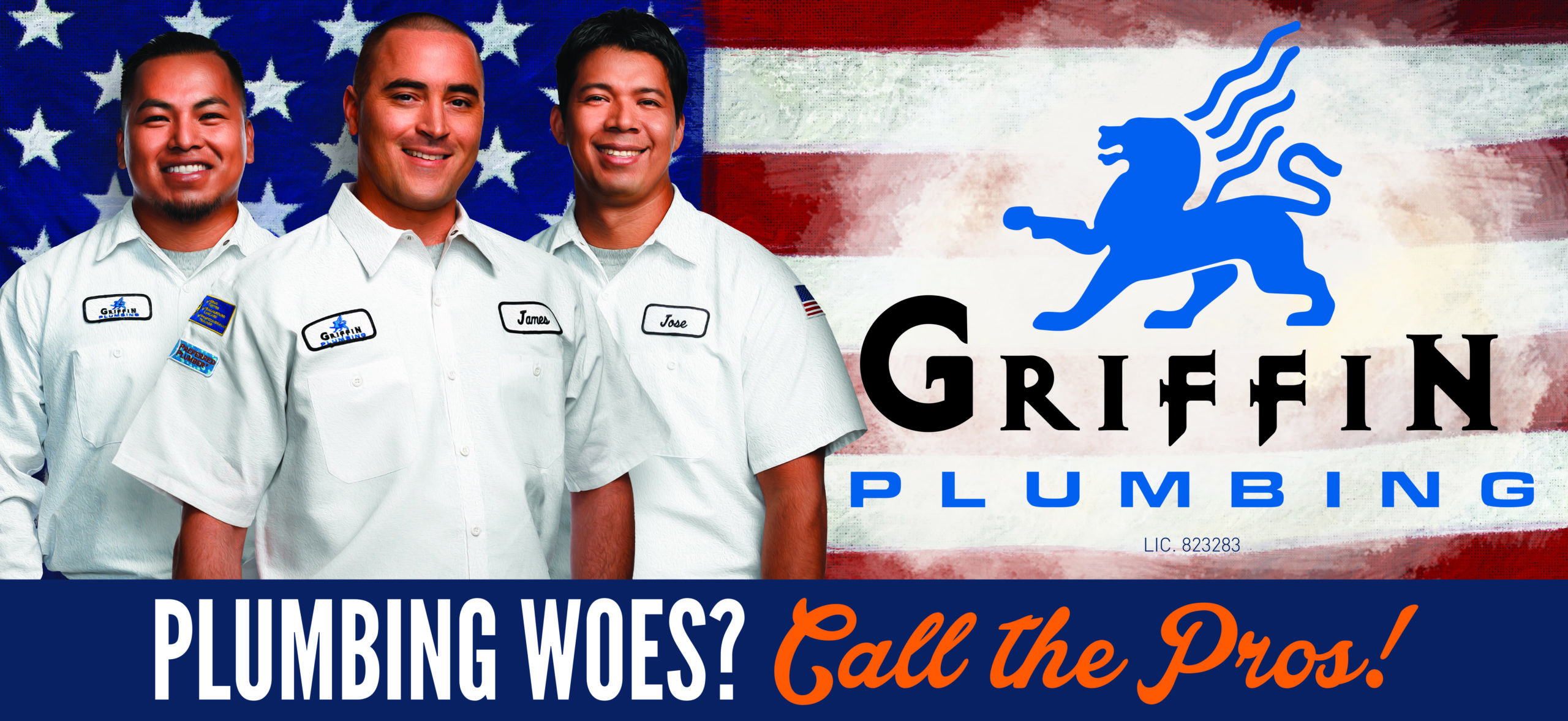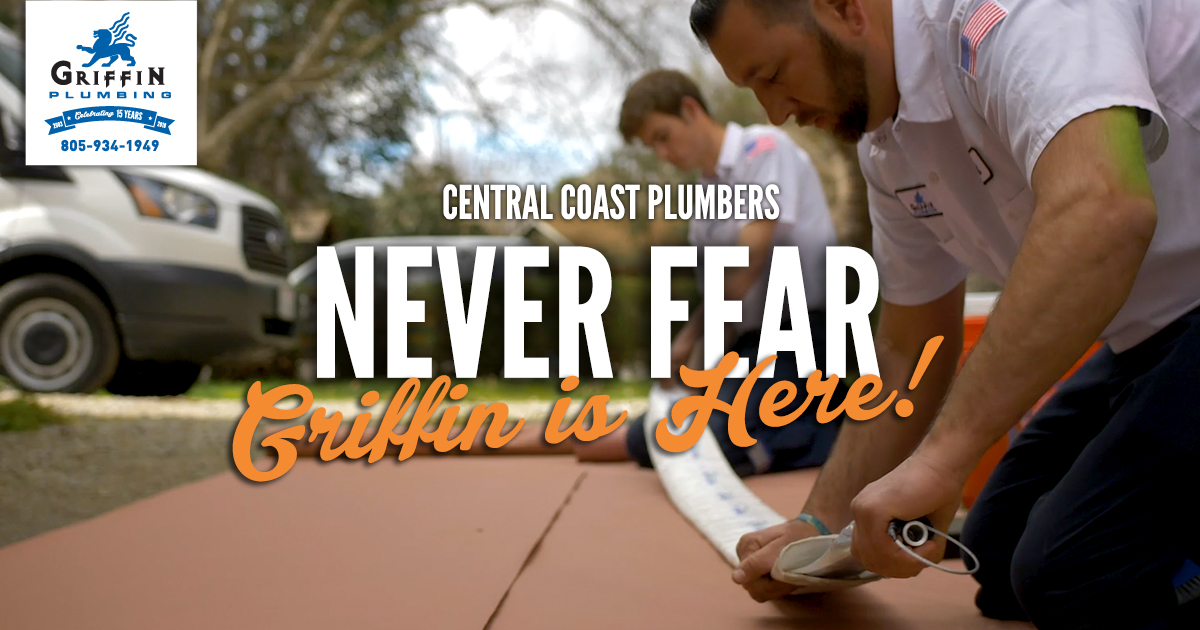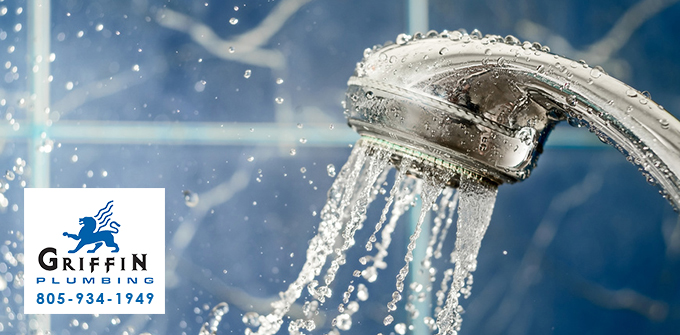There’s nothing like taking a nice steamy shower. And there’s nothing like the disappointment of not getting one. Whether you’re replacing a water heater that gave up the ghost or choosing a new one for a remodel or new construction, how do you know what fits your needs?
For a long time, choosing a water heater was pretty easy. You chose from gas or electric and selected the size that assured enough hot water for your household’s use.
Today, many homeowners are considering tankless water heaters, which are also available in both gas and electric models. Is going tankless the right choice for you? Here’s a quick rundown of some pros and cons, courtesy of your Central Coast plumbers.
Pro
Energy efficiency: Tankless water heaters heat the water only once when you need it. Traditional tank-style water heaters heat and store the water, they may have to run again in order to keep it at the right temperature until you use it. The lower energy use of a tankless unit can save you money.
Longevity: Tankless water heaters typically last up to 20 years, while traditional models average 8-12 years. Replacing less often can save money in equipment and labor.
Size: Because they aren’t storing the water they heat, tankless water heaters don’t need as much room, saving valuable space.
Continuous supply: Unlike a traditional unit, which will stop supplying hot water when the heated water in the tank has been used, a tankless water heater continually heats and provides water at the right temperature.
Con
Initial cost: Tankless water heaters cost more upfront. As the prices of traditional tank-style heaters continue to rise, this gap is getting smaller. You may decide that the longevity and energy savings make up for the price difference.
Installation costs: While installation in new construction poses little challenge, the switch to a tankless water heater in existing construction can require upgrades to gas or electrical systems. Also, depending on the water quality in your area, the use of a water softening system with your tankless water heater may be recommended. This can increase cost, space, and maintenance requirements.
Supply volume: While a tankless model will continuously supply hot water, it has limits to how much it can deliver at once. In homes where multiple people or appliances will be using hot water at once, it’s especially important to have a unit with properly sized output capacity. Otherwise, inconsistent temperatures could be a problem.
Neutral
Expect some annual maintenance on either style of water heater. Each has manufacturer maintenance requirements, which are often overlooked. Whichever you choose, be sure to familiarize yourself with the owner’s manual
Decision time?
Evaluating your options is easier with the help of a pro. Our Griffin Plumbing team is happy to assist you. You can make an appointment by phone at 805-934-1949 or contact us online.
